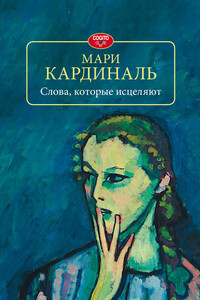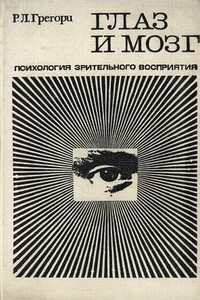Не позволяйте тревоге рулить вашей жизнью - [61]
Desrosiers, A., V. Vine, J. Curtiss, and D. H. Klemanski. 2014. “Observing Nonreactively: A Conditional Process Model Linking Mindfulness Facets, Cognitive Emotion Regulation Strategies, and Depression and Anxiety Symptoms.” Journal of Affective Disorders 165: 31–37.
Dresler, T., K. Meriau, H. R. Heekeren, and E. van der Meer. 2009. “Emotional Stroop Task: Effect of Word Arousal and Subject Anxiety on Emotional Interference.” Psychological Research 73 (3): 364-71.
Drost, J., W. van der Does, A. M. van Hemert, B. W. Penninx, and P. Spinhoven. 2014. “Repetitive Negative Thinking as a Transdiagnostic Factor in Depression and Anxiety: A Conceptual Replication.” Behaviour Research and Therapy 63: 177-83.
Ehlers, A., and D. M. Clark. 2000. “A Cognitive Model of Posttraumatic Stress Disorder.” Behaviour Research and Therapy 38 (4): 319-45.
Erisman, S. M., and L. Roemer. 2010. “A Preliminary Investigation of the Effects of Experimentally Induced Mindfulness on Emotional Responding to Film Clips.” Emotion 10 (1): 72.
Forgas, J. P. 2014. “Can Sadness Be Good for You?: On the Cognitive, Motivational, and Interpersonal Benefits of Negative Affect” In The Positive Side of Negative Emotions, edited by W. G. Parrott. New York: Guilford Press.
Friedman, В. H., and J. F. Thayer. 1998. “Autonomic Balance Revisited: Panic Anxiety and Heart Rate Variability.” Journal of Psychosomatic Research 44 (1): 133-51.
Frijda, N. H. 1986. The Emotions. Cambridge: Cambridge University Press.
Gilboa-Schechtman, E., E. B. Foa, and N. Amir. 1999. “Attentional Biases for Facial Expressions in Social Phobia: The Face-in-the-Crowd Paradigm.” Cognition and Emotion 13 (3): 305-18.
Gross, J. J. 1998. “The Emerging Field of Emotion Regulation: An Integrative Review.” Review of General Psychology 2 (3): 271.
–-. 2008. “Emotion Regulation.” In Handbook of Emotions,
3>rd ed., edited by M. Lewis, J. M. Haviland-Jones, and L. Feldman Barrett. New York: Guilford Press.
Gross, J. J., and R. A. Thompson. 2007. “Emotion Regulation: Conceptual Foundations.” In Handbook of Emotion Regulation, edited by J. J. Gross. New York: Guilford Press.
Gyurak, A., J. J. Gross, and A. Etkin. 2011. “Explicit and Implicit Emotion Regulation: A Dual-Process Framework.” Cognition and Emotion 25 (3): 400–412.
Hansen, С. H., and R. D. Hansen. 1988. “Finding the Face in the Crowd: An Anger Superiority Effect.” Journal of Personality and Social Psychology 54 (6): 917-24.
Hauser, M., F. Cushman, L. Young, R. Kang-Xing Jin, and J. Mikhail. 2007. “A Dissociation Between Moral Judgments and Justifications.” Mind and Language 22 (1): 1-21.
Haybron, D. M. 2014. “The Value of Positive Emotion: Philosophical Doubts and Reassurances.” In Positive Emotion: Integrating the Light Sides and Dark Sides, edited by J. Gruber and J. Tedlie Moskowitz. New York: Oxford University Press.
Hayes, S. C. 2004. “Acceptance and Commitment Therapy, Relational Frame Theory, and the Third Wave of Behavioral and Cognitive Therapies.” Behavior Therapy 35 (4): 639–665.
Hayes, S. C., J. B. Luoma, F. W. Bond, A. Masuda, and J. Lillis. 2006. “Acceptance and Commitment Therapy: Model, Processes and Outcomes.” Behaviour Research and Therapy 44 (1): 1-25.
Hayes, S. С, K. D. Strosahl, & K.G. Wilson. 2011. Acceptance and Commitment Therapy: The Process and Practice of Mindful Change. New York: Guilford Press.
Heeren, A., H. E. Reese, R. J. McNally, and P. Philippot. 2012. “Attention Training Toward and away from Threat in Social Phobia: Effects on Subjective, Behavioral, and Physiological Measures of Anxiety.” Behaviour Research and Therapy 50 (1): 30–39.
Herbert, J. D., and E. M. Forman, eds. 2011. Acceptance and Mindfulness in Cognitive Behavior Therapy: Understanding and Applying the New Therapies. Hoboken, NJ: John Wiley & Sons.
Hill, C. L., and J. A. Updegraff. 2012. “Mindfulness and Its Relationship to Emotional Regulation.” Emotion 12 (1): 81–90.
Hofmann, S. G., S. Heering, A. T. Sawyer, and A. Asnaani. 2009. “How to Handle Anxiety: The Effects of Reappraisal, Acceptance, and Suppression Strategies on Anxious Arousal.” Behaviour Research and Therapy 47 (5): 389-94.
Hofmann, S. G., A. T. Sawyer, A. A. Witt, and D. Oh. 2010. “The Effect of Mindfulness-Based Therapy on Anxiety and Depression: A Meta-analytic Review.” Journal of Consulting and Clinical Psychology 78 (2): 169.
Kabat-Zinn, J. 1994. Wherever You Go, There You Are: Mindfulness Meditation in Everyday Life. New York: Hyperion.
–-. 2009. Full Catastrophe Living: Using the Wisdom of Your
Body and Mind to Face Stress, Pain, and Illness. 15th anniversary ed., with a new introduction by the author. New York: Delta.
Kessler, R. C., W. T. Chiu, O. Dernier, and E. E. Walters. 2005. “Prevalence, Severity, and Comorbidity of 12-month DSM-IV Disorders in the National Comorbidity Survey Replication.” Archives of General Psychiatry 62 (6): 617-27.
Koster, E., G. Crombez, S. van Damme, B. Verschuere, and J. de Houwer. 2005. “Signals for Threat Modulate Attentional Capture and Holding: Fear-Conditioning and Extinction During the Exogenous Cueing Task.

«Слова, которые исцеляют» (1975) – одна из самых известных книг Мари Кардиналь – написана на основе ее собственного опыта в психоанализе. Изображен тот период и те условия, что привели автора к психической нестабильности, а затем к постепенному выздоровлению. Сюжет вращается вокруг женщины, переживающей эмоциональный срыв, порожденный ее отношениями с матерью. Героиня проходит длительный курс психоанализа. Постепенно она понимает, что была не в состоянии справиться с жесткими рамками кодекса поведения патриархальной системы, регулирующими ее жизнь с детства.

В своей книге я написала все свои препятствия, страхи на пути к выздоровлению. Я уверена, что каждый из вас найдет именно в ней именно то, что в данный момент нужно. Между строк можно увидеть себя и провести параллель, даже если у вас вопрос, проблема, связаны не со здоровьем, как у меня. Мне будет приятно услышать от вас лично, чем была полезна моя книга. Для меня это важно, ведь творчество мое не имеет границ и готова написать вам следующую книгу, которая будет так же вам полезна, как и эта.

Ричард Грегори, известный исследователь зрительной системы, в своей книге делает попытку дать анализ мозговых механизмов зрительного восприятия человека, последовательно останавливаясь на той роли, которую играют в организации зрительного восприятия периферический аппарат глаза и центральные аппараты мозгового анализа и синтеза зрительной информации. Предисловие и общая редакция А.Р.Лурия и В.П.Зинченко.

Каждое явления мира проявляется двумя параметрами: контентом и форматом. Контент Православия — Священное Писание и Священное Предание. Формат — то, как оно проявляется применительно к реалиям сегодняшнего дня. Книга посвящена христианскому осмыслению ПСИХИЧЕСКИХ РАССТРОЙСТВ. ТВОРЧЕСТВА, СТРАДАНИЯ, ЛЮБВИ, ПАТОЛОГИИ ЛИЧНОСТИ, СЕКСУАЛЬНОСТИ, ЗРЕЛОСТИ, ОТНОШЕНИЮ К СМЕРТИ И ДУХОВНОМУ РОСТУ. Ее можно было бы также назвать: «Как радоваться тому, что ты христианин в сложном современном мире».

Материал данной книги необычен тем, что впервые массовому читателю даются подробнейшие сведения по внушению без погружения в сон с детальным разбором этого метода внушения, известного пока ограниченному числу гипнотизеров, выступающих с эстрады. В книге приводятся восемнадцать способов обычного гипнотизирования, рассматриваются возможности мысленного внушения. Книга снабжена упражнениями, при помощи которых можно самостоятельно в кратчайшие сроки овладеть методами гипнотизирования.

Дэнни Грегори на личном примере и примере других людей рассказывает, как работает внутренний критик, как его распознать и как с ним справиться, а также предлагает техники преодоления этих ступоров, мешающих полностью себя реализовать. Эта книга для тех, кто хочет победить в себе маленького критика и обрести свободу.